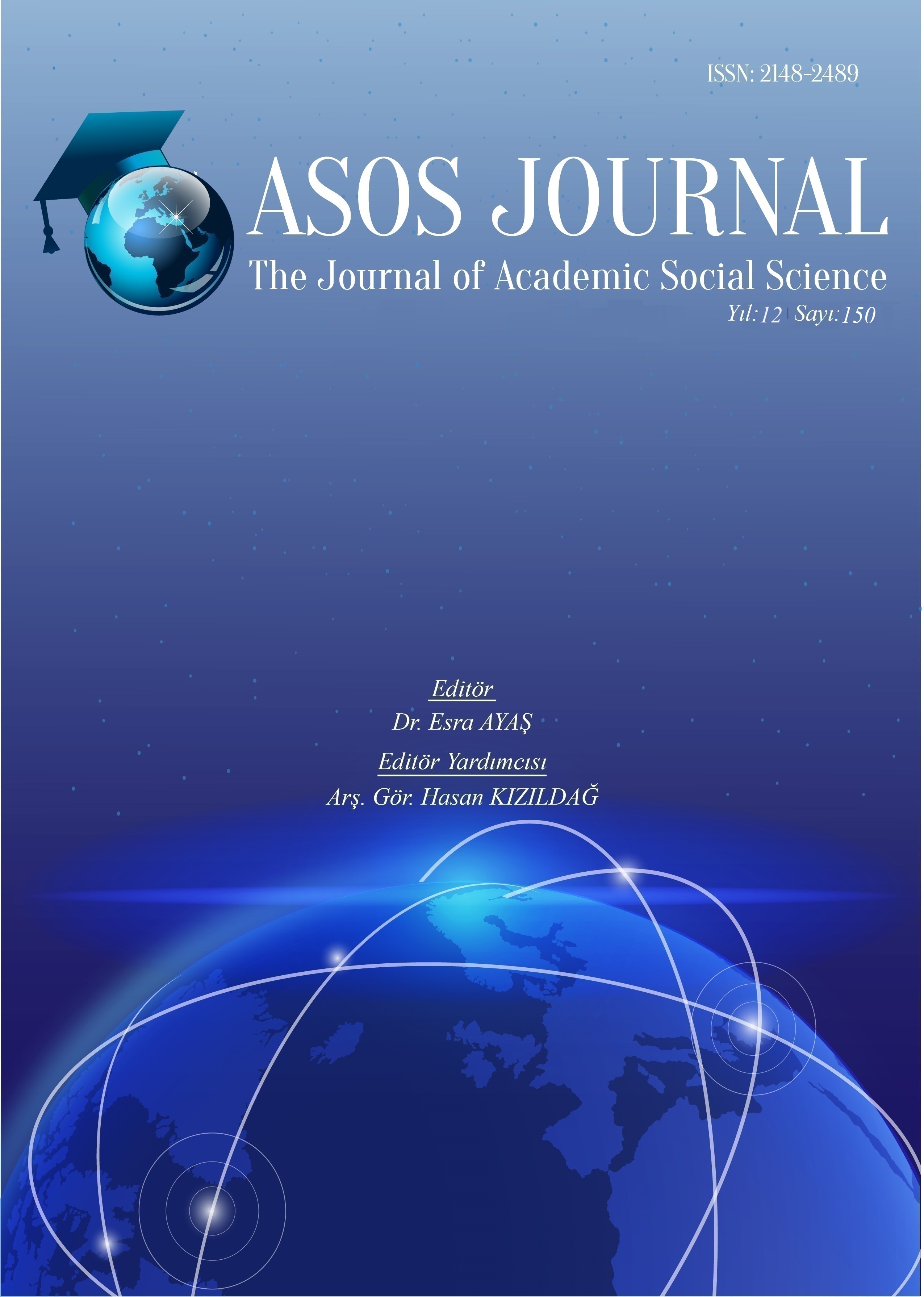Author :
Abstract
Bu makalede Hâkim el-Cüşemî’nin et-Tehzîb fi’t-tefsîr adlı tefsirinde nübüvvet bahisleri ve Mu‘tezile ekolünün etkisi araştırma konusu yapılmıştır. Hz. Ali ile Muaviye arasında cereyan eden Sıffîn (37/657) savaşı sonrasında “hakem olayı”nı takip eden süreçte Müslümanlar arasında itikâdî ve siyasî görüş ayrılıkları sebebiyle birçok mezhep ortaya çıkmıştır. Her mezhep kendi görüşünün doğruluğunu ispatlayabilmek amacıyla Kur’ân âyetlerine müracaat etmiştir. Ancak mezhep mensubu müfessirlerin bir kısmı âyetleri esas alırken bir kısmı mensubu oldukları mezhebin prensipleri istikametinde âyetleri te’vil etmiştir. Mu‘tezile ekolüne mensup müfessirler de bu mezhebin usûlü hamse diye meşhur beş esası istikametinde tefsir yazmışlardır. Cüşemî’nin et-Tehzîb fi’t-tefsîr adlı tefsiri de Mu‘tezilî görüşlerin yoğun olarak işlendiği bir tefsirdir. Araştırmamız söz konusu tefsirdeki nübüvvet bahisleri ile sınırlandırılmıştır. Araştırmamızın amacı nübüvvet kapsamına giren meselelere dair Cüşemî’nin görüşlerini tespit etmek, Mu‘tezile’nin aynı meselelere ilişkin görüşleri arasındaki benzerlik ve farklılıkları belirlemektir. Bu araştırmada literatür taraması yöntemi kullanılarak el-Cüşemî’nin tefsiri başta olmak üzere kelâmî-itikâdî konularda kaleme alınmış eserler incelenmiştir. Araştırma sonucunda Cüşemî’nin nübüvvet kapsamına giren meseleler bağlamında Mu‘tezile ekolünün görüşlerini kabul ettiği tespit edilmiştir. Bu bağlamda el-Cüşemî hem nübüvvet müessesesini kabul etmekte hem de hasen/iyi olması durumunda peygamber göndermenin Allah için vacip olduğunu iddia etmektedir.
Keywords
Abstract
In this article, al-Ḥākim al-Jushamī’s tafsīr al-Tahdhīb fī al-Tafsīr is analyzed in terms of mentions of prophethood and the influence of Mu‘tazila school. After the Battle of Siffin (37/657) between Ali and Mu‘awiya, many sects emerged among Muslims in the period following the “Arbitration” due to the differences of opinion on theological and political issues. Each sect referred to the verses of the Qur’ān in order to prove the legitimacy of its views. However, while some of the mufassirs belonging to these sect took the verses as basis, others attempted to interpret the verses in line with the principles of the sect they belonged to. Mu‘tazilite mufassirs also wrote tafsīr in line with the five principles of this sect known as al-Uṣul al-Khamsa. al-Jushamī’s tafsīr titled al-Tahdhīb fī al-Tafsīr covers Mu‘tazilite views extensively. The present study is limited to the mentions of prophethood in this tafsīr. The present study aims to identify al-Jushamī’s views on the issues that fall within the scope of prophethood and to determine the similarities and differences between the Mu‘tazilites’ views on the same issues. In this study, the literature review method was used to examine the sources produced on kalami-itiqadi issues, particularly al-Jushamī’s tafsīr. As a result of the study, it was concluded that al-Jushamī adopted the views of the Mu‘tazila school in his tafsīr in the context of the issues that fall within the scope of prophethood. In this context, al-Jushamī both accepts the institution of prophethood and claims that it is obligatory for Allah to send a prophet if it is hasen/good.





